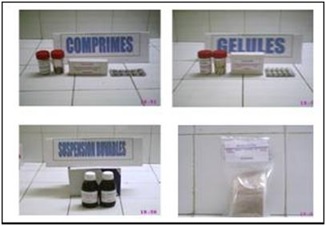
Tsabang Nolé
University of Dschang, Cameroon
Biography
Tsabang Biography Nolé has completed his PhD at the age of 48 years from Yaounde 1 University. Author of 63 articles and principal investigator of 4 books published by Heifer International Project Cameroon, he has higher education experience in teaching and consulting. Besides Biodiversity and ethnopharmacological research, Dr Tsabang Nolé teaches the following undergraduate and graduate courses: Ecophysiology, Sustainable development, Ethnobotany and socio-economic aspects of Agroforestory, Ethnobotany and environmental health, Environmental health and ecosystems dynamics, Biodiversity and Natural Resources management, Ecosystems Dynamics and Carbon stock evaluation, Ethnopharmacology, and Traditional medicine, as visiting lecturer at the Faculty of Medicine and Biomedical Science, at the University of Dschang and at the Higher Institute of Environmental Sciences.
Abstract
The products of local therapists have a very short time of conservation. They are generally prepared for immediate consumption, especially for macerations, infusions and decoctions formulation products, which become unfit for human consumption after five to seven days of conservation. This study aims to evaluate a new approach for the development of an improved traditional medicine (ITM) used to prepare an oral hyperglycemic herbal medicine based on Laportea ovalifolia. The parameters of ethno pharmacological evaluation are: the derived product is unchangeable in task, color and odor, no oxidation which produces a solid deposit at the bottom of the bottle, and a deposit of foam at the top, vaporization which produced the diminution of the product inside the bottle, and finally the duration of conservation. To achieve this objective, we have regularly compared the improved traditional medicine (ITM) with local therapist’s preparation based on Laportea ovalifolia. Four galenic forms of hypoglycemic improved traditional medicine were produced. From October 2007 date of their preparation to 2018 they still undamaged, when well conserved (Fig 1). While most traditional or herbal medicines become oxidized and decompose after 5 to 7 days of their preparation. A relationship between these four formulations was described as follow: One spoon of oral suspension (10 ml) = one sachet of powder=2 tablets=3 capsules. Hence, our research provides new insight into a drug discovery approach that could alleviate the major problems affecting traditional medicine and enhance its effectiveness in addressing health care in developing countries.

Fig. 1: Four forms of improved traditional herbal antihyperglycemic medicine